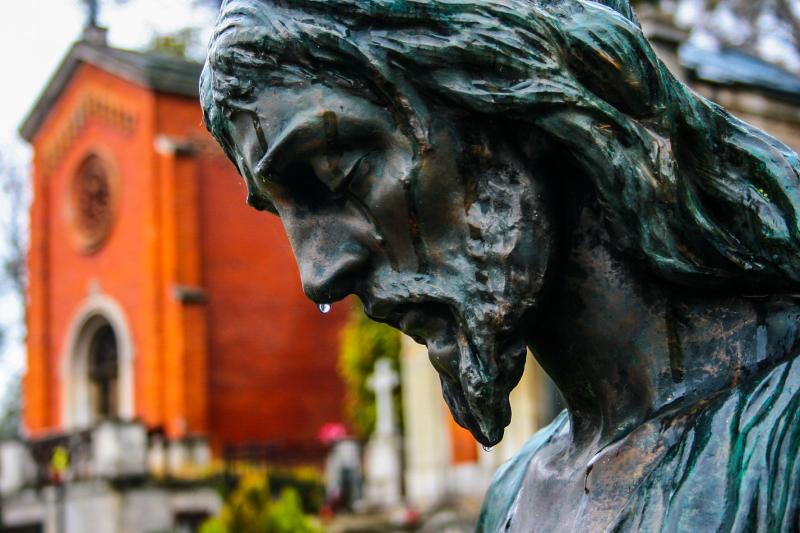
March 26, 2023 | Moira Greaney | Today's Readings
"And Jesus wept." (John 11:35)
In today’s Gospel we hear the shortest verse in the whole Bible: “And Jesus wept.”
In the face of his dear friend Lazarus’ death, Jesus is brought to tears.
This humanizing detail, placed within the story of Jesus’ miraculous raising of Lazarus, teaches us an important truth about the nature of God: ours is a God who mourns.
I first learned this lesson intimately after a friend of mine suddenly passed away the day before our sophomore year of college began.
In the wake of this loss, I started asking, How could a good God let people suffer? Is God indifferent to our pain?
As I moved through this anger and hurt, I eventually recalled those three words: “And Jesus wept.” This verse reminded me that the pain I was experiencing was not unique to me — even God knew what it was like to lose a friend.
Just as Jesus wept over Lazarus, so too did God weep over the death of my friend Nick.
I’m reminded of this lesson often in our work to end the death penalty at Catholic Mobilizing Network. As part of the communications team, one of my responsibilities is to hold “virtual vigils” for executions, posting updates and prayers on social media as the state takes the life of a human being.
Capital punishment is intentionally designed to be sterile. Our criminal legal system would prefer we think of executions as innocuous procedures, rather than senseless murders. As I sit behind my computer, holding vigil, I can get lost in this sterility — until I remember those three words: “And Jesus wept.”
When I invite our weeping God to be present with me throughout a vigil, I find comfort in knowing that our God laments these state-sanctioned murders just as we do.
The work of ending the death penalty can feel relentless at times. It requires constant vigilance, strategizing, education, and advocacy — but that does not mean we are indifferent to the suffering that it causes.
Rather, I think lamenting the suffering is the very place we need to begin.
Jesus took this same approach in today’s Gospel. He does not arrive in Bethany and immediately raise Lazarus. He first takes a moment to mourn the loss of his friend, and accompany Mary and Martha in their suffering.
There is indeed great suffering in our world. I am certain that I am not the only one who at times has felt like God turns a blind eye to the hurt in our midst.
But even if I may feel this way momentarily, in my heart I know this could not be further from the truth. God is not distant from suffering. God is beside us in even the deepest trenches of pain.
If you find yourself in a moment of doubt, I invite you to remember this: when we mourn, God mourns; when we suffer, God suffers; when we cry out against injustice, God cries out against injustice.
Ours is a God who weeps.







